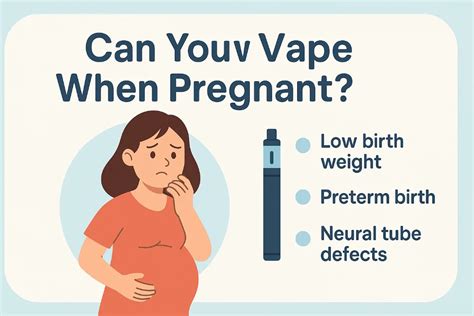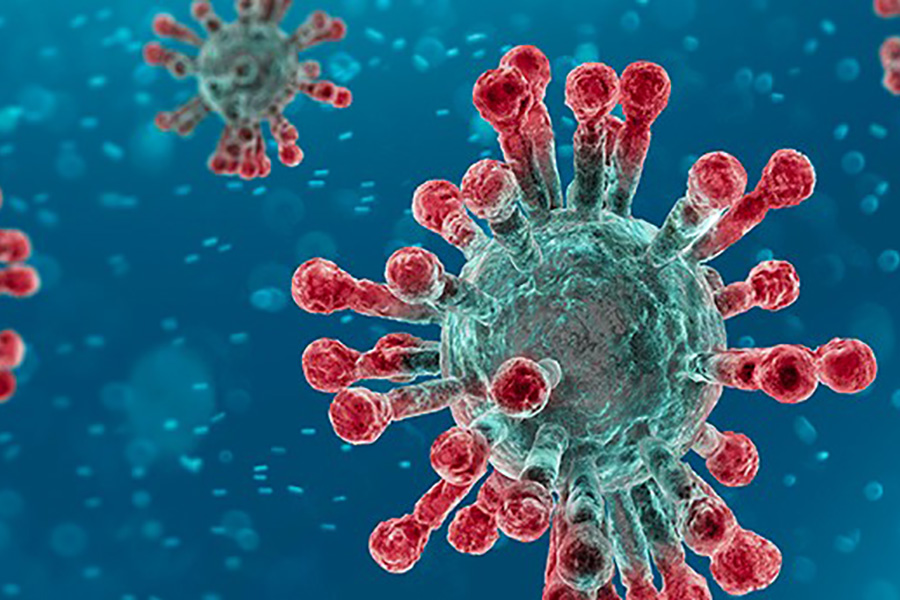Can You Vape When Pregnant

When considering the safety of vaping during pregnancy, it’s crucial to understand the potential risks and complications associated with this practice. Pregnancy is a sensitive period where the health and well-being of both the mother and the fetus are of paramount importance. Any substance that is inhaled, ingested, or otherwise introduced into the body can have unforeseen effects on the developing fetus.
Vaping, or the use of e-cigarettes, has become increasingly popular over the past decade as a perceived safer alternative to smoking traditional cigarettes. However, the notion that vaping is safe, especially during pregnancy, is misleading. E-cigarettes contain a multitude of chemicals, including nicotine, heavy metals, and ultrafine particles, which can be harmful when inhaled.
Nicotine and Pregnancy
One of the primary concerns with vaping during pregnancy is the presence of nicotine in most e-cigarette products. Nicotine is a highly addictive substance that can have severe effects on fetal development. It can reduce blood flow to the placenta, which provides oxygen and nutrients to the fetus, potentially leading to low birth weight, premature birth, and other complications. Additionally, nicotine exposure in utero has been linked to long-term neurological and behavioral problems in children.
Other Chemicals in E-Cigarettes
Besides nicotine, e-cigarettes contain thousands of other chemicals, many of which have not been fully studied for their health impacts. These chemicals can include flavorings, such as diacetyl, which has been associated with serious lung disease, and volatile organic compounds (VOCs), which are known to have harmful health effects. The inhalation of these substances can lead to respiratory issues, increased heart rate, and other cardiovascular problems, not just for the mother but potentially affecting the fetus as well.
Vaping and Respiratory Health
Pregnancy already puts a strain on the respiratory system due to the increased demand for oxygen and the physical changes that occur as the fetus grows. Vaping can exacerbate these challenges by introducing harmful substances into the lungs. This can lead to respiratory complications for the mother and may also affect the development of the fetal lungs.
The Myth of Safer Alternatives
Some individuals may believe that vaping is a safer alternative to smoking during pregnancy. While it is true that e-cigarettes may expose users to fewer toxins than traditional cigarettes, this does not mean they are safe. The lack of regulation in the vaping industry means that the exact composition of e-liquids can vary greatly, and many have been found to contain harmful substances.
Guidance for Pregnant Individuals
For those who are pregnant and looking to quit smoking or vaping, there are numerous resources available. The first step is to consult with a healthcare provider, who can offer guidance on quitting strategies and provide support throughout the process. Various organizations, such as the American College of Obstetricians and Gynecologists (ACOG) and the Centers for Disease Control and Prevention (CDC), also provide valuable information and resources for quitting vaping and smoking during pregnancy.
Alternative Quitting Strategies
Quitting nicotine is challenging, but there are effective strategies and tools available. These include:
- Counseling: Individual, group, or phone counseling can provide the support needed to quit.
- Medications: Prescription medications like bupropion and varenicline can help reduce cravings and withdrawal symptoms.
- Nicotine Replacement Therapy (NRT): While not recommended during pregnancy without consulting a healthcare provider, NRT can sometimes be used under medical supervision.
- Support Groups: Joining a support group, either in-person or online, can connect individuals with others who are going through similar experiences.
Conclusion
Vaping during pregnancy poses significant risks to both the mother and the fetus. The presence of nicotine and other harmful chemicals in e-cigarettes can lead to a range of complications, from low birth weight and premature birth to long-term neurological and behavioral problems. It is essential for pregnant individuals to avoid vaping altogether and to seek help if they are struggling with nicotine addiction. With the right support and resources, quitting is possible, and it is a crucial step towards ensuring a healthy pregnancy and a healthy baby.
Is it safe to vape during pregnancy?
+No, vaping during pregnancy is not safe. It exposes both the mother and the fetus to harmful substances, including nicotine, which can have serious health implications.
What are the risks of vaping during pregnancy?
+The risks include low birth weight, premature birth, respiratory complications, and potential long-term neurological and behavioral problems in children exposed to nicotine in utero.
How can I quit vaping during pregnancy?
+Consult with a healthcare provider, who can offer guidance on quitting strategies, provide support, and recommend resources such as counseling, support groups, and, in some cases, medication under medical supervision.



